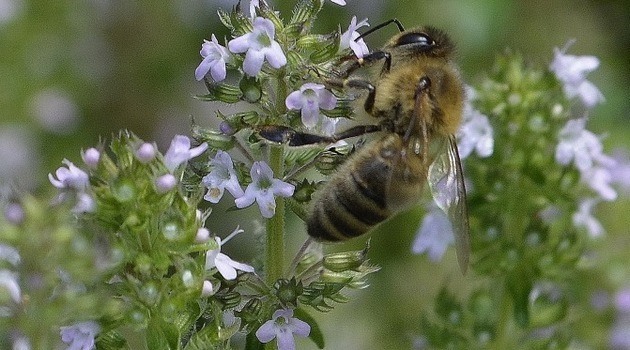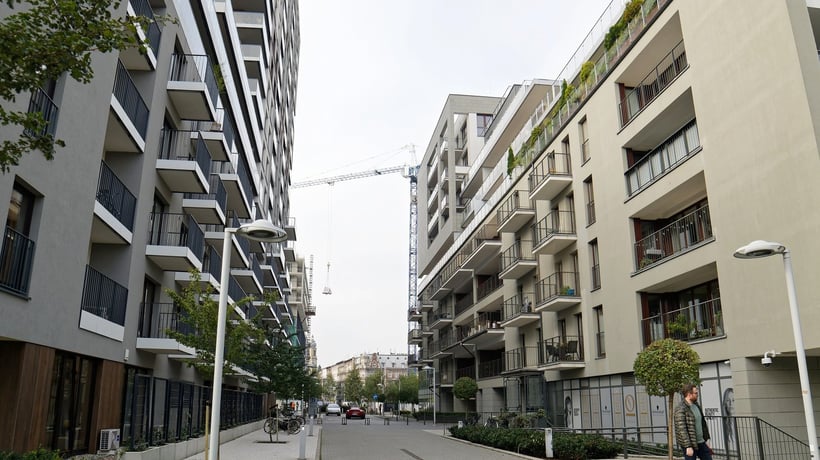42% of land in Wroclaw is occupied by agricultural areas where bees have been present for a long time, and the new resolution does not change anything here. The changes in the rules of keeping the municipal area clean that became valid at the end of July refer to residential areas.
Bees are not worse than hens
Until recently, beekeeping was not permitted in residential areas within the borders of Wroclaw. Only farm animals such as poultry, rabbits or horses could be bred for recreational purposes. For this reason, city beekeepers had to keep their occupation secret. By way of exception, with the consent of the local administration, it was possible to keep beehives in allotments.
Now, pursuant to the new resolution, keeping honeybees (which are farm animals, too) is also allowed.

What does this mean? Now you may place a beehive and discover the charm of beekeeping in the city centre – not only in the garden, but also on the roof of a residential building or on the terrace. Still, however, there are certain restrictions – the future owner of an apiary has to place his beehive(s) within distances required by the law and in a manner that does not cause inconvenience to the environment.
Where and how to place a beehive?
According to Chapter 6 point 2 of the resolution, beehives may be located at a distance of minimum 10 m from the border of real property and minimum 30 m from buildings located in other real properties. These distances may be reduced with the consent of owners of adjacent real properties.
If beehives are located on roofs of buildings (point 3), they must be kept at a distance of minimum 10 m from window openings situated on and above the level of location of beehives; however, in such cases, the restrictions specified in point 2 are not applicable.
Inconvenience is a separate issue. ‘It is a question of coming to an agreement with neighbours,’ says Marcin Lisiecki from the Department of Environment and Agriculture of the Wroclaw City Office. ‘Once a complaint was brought against a man who kept bees on the balcony of his house in Krzyki. He had three beehives, and the complaint was brought by his wife, not by neighbours. Now I would find it hard to decide how to handle this issue, particularly if he kept beehives at the required distance,’ admits Lisiecki.
He adds that other issues not specified in the resolution are not specifically regulated, but some provisions concerning beekeeping can be found in the code of petty offences and in the code of good beekeeping practices.
Beekeepers are happy, but...
Maciej Misiałczyk, a Wroclaw beekeeper and originator of the Save Bees campaign, is visibly happy with the fact that the new resolutions allows beekeepers to pursue their hobby in residential areas. ‘This is a step in the right direction. Some persons who have kept their beehives in secrecy until now, because that was against the law, will be particularly happy,' he says. However, he warns that the decision to keep bees must not be taken too hastily. ‘There is a lot of work to do around an apiary – it is an occupation for freaks. It is not enough to place a beehive with a fresh wood scent. You have to buy bees, then look into the beehive once a week, check the condition of bees, separate honey by centrifugation’, stresses Musiałczyk. A potential beekeeper must also know where to place beehives to ensure a sufficient amount of food to bees. It is good to keep them close to allotments, which offer a large variety of plants, weeds or parks. In this respect, conditions in Wroclaw are quite good.
’However, it is best to keep bees on the city outskirts,’ he adds, advising potential city beekeepers to consult and assist an experienced beekeeper at least a few times beforehand.
Marcin Musiałczyk also says that it is not necessary to be afraid that bees from the neighbours’ beehive may sting. ‘As a result of long-term crossbreeding, contemporary bees are much more than the former ones. If we do not disturb bees or tread on them, they will not sting us,’ he reassures.

Of course, in order to protect beehives, you do not have to be a beekeeper or place beehives. You can plant honey-producing plants that attract bees and other insects in the garden near the house or on the balcony if you live in a block of flats. See what plants you can plant to help bees. You can also erect small houses for wild pollinators, such as solitary bees (e.g., mason bees) or bumblebees to help them survive winter.








